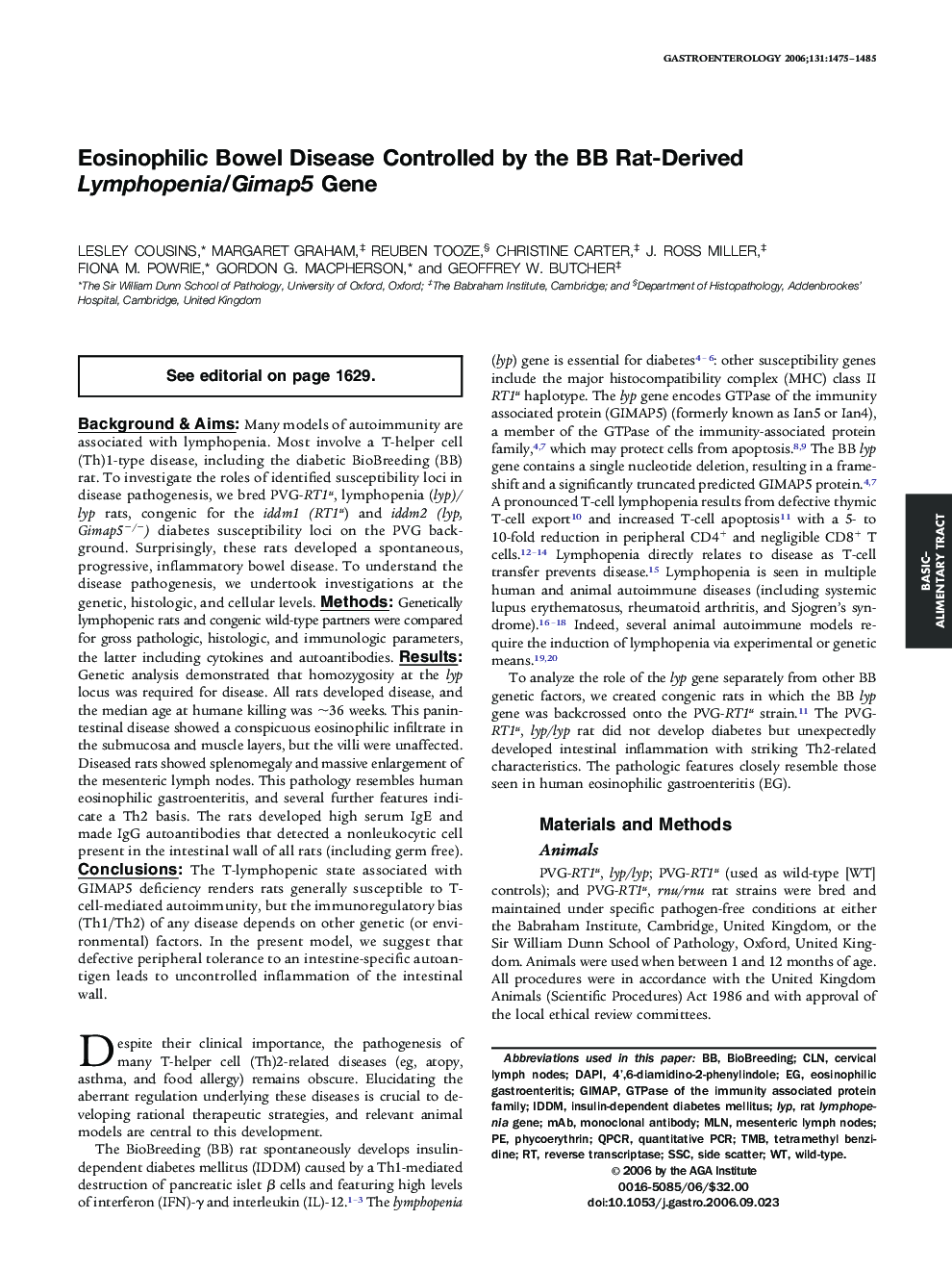| کد مقاله | کد نشریه | سال انتشار | مقاله انگلیسی | نسخه تمام متن |
|---|---|---|---|---|
| 3299800 | 1209937 | 2006 | 11 صفحه PDF | دانلود رایگان |

Background & Aims: Many models of autoimmunity are associated with lymphopenia. Most involve a T-helper cell (Th)1-type disease, including the diabetic BioBreeding (BB) rat. To investigate the roles of identified susceptibility loci in disease pathogenesis, we bred PVG-RT1u, lymphopenia (lyp)/lyp rats, congenic for the iddm1 (RT1u) and iddm2 (lyp, Gimap5−/−) diabetes susceptibility loci on the PVG background. Surprisingly, these rats developed a spontaneous, progressive, inflammatory bowel disease. To understand the disease pathogenesis, we undertook investigations at the genetic, histologic, and cellular levels. Methods: Genetically lymphopenic rats and congenic wild-type partners were compared for gross pathologic, histologic, and immunologic parameters, the latter including cytokines and autoantibodies. Results: Genetic analysis demonstrated that homozygosity at the lyp locus was required for disease. All rats developed disease, and the median age at humane killing was ∼36 weeks. This panintestinal disease showed a conspicuous eosinophilic infiltrate in the submucosa and muscle layers, but the villi were unaffected. Diseased rats showed splenomegaly and massive enlargement of the mesenteric lymph nodes. This pathology resembles human eosinophilic gastroenteritis, and several further features indicate a Th2 basis. The rats developed high serum IgE and made IgG autoantibodies that detected a nonleukocytic cell present in the intestinal wall of all rats (including germ free). Conclusions: The T-lymphopenic state associated with GIMAP5 deficiency renders rats generally susceptible to T-cell-mediated autoimmunity, but the immunoregulatory bias (Th1/Th2) of any disease depends on other genetic (or environmental) factors. In the present model, we suggest that defective peripheral tolerance to an intestine-specific autoantigen leads to uncontrolled inflammation of the intestinal wall.
Journal: Gastroenterology - Volume 131, Issue 5, November 2006, Pages 1475–1485